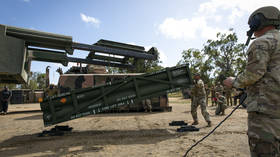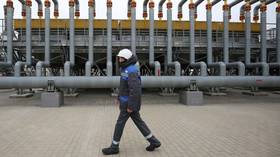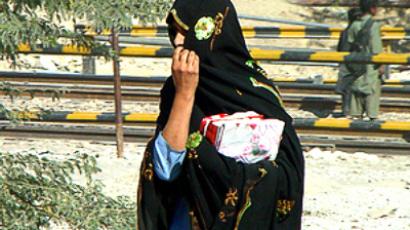Georgian transgender feel unwelcome at home
Sexual minorities in Georgia are accusing the government and the Orthodox church of persecuting them. They want their life choices to be accepted instead of being labeled a sin or disease.
Nika spent 5 years working in Georgia’s police force, and got fired … for being a woman.
Nika is transgender and says he is not accepted for wanting to live in a man’s body.
He claims gays, lesbians, and transsexuals are considered perverts by most Georgians.
“They say we should sit in our homes and not show up on the street. What, am I not a human being? Or, they say get the hell out of Georgia – is this not my country?” Nika claims.
The Georgian Orthodox church is one of the strongest opponents of gays and lesbians in the country.
The Metropolitan of Borjomi and Bakuriani, Father Serafim, commented, “Our position should be staunch, but we must also remember that they’re sick people. Society, the government and the people must do everything they can to help them heal.”
But Nika, who is himself an Orthodox Christian, disagrees.
“If this is an illness – where’s the cure?” he asks. “I feel fine, nothing hurts, except for my soul because I’m being mistreated.”
Nika’s scars are not just emotional. When he was younger, self-mutilation seemed the only way of dealing with the everyday stress of not being accepted by anyone… except his daughter.
“She hugged me and said she knows everything, and loves me the way I am.”
When Nika needs support, he turns to Paata Sabelashvili, the founder and president of the Inclusive Foundation, one of Georgia’s very few organizations for lesbians, gays and transgender people.
He believes sexual minorities are being abused by society and used by authorities.
“The government itself uses this topic to shift the public attention or the criticism from more existential issues,” Paata Sabelashvili says.
While Georgian authorities insist the country is embracing western values, the reality, Paata says, is quite different.
“Georgia might be portrayed in a very positive way in Western Europe. But there is not much done at home,” Paata claims.
Paata says even those who dare to show support for the LGBT community are also under fire.
On the hippest corner in the Georgian capital, where two streets are lined with bars and clubs on literally every single corner, you won’t find a single place that caters to gays and lesbians. In Georgia it would be too dangerous not only for them, but for the bar’s owners, as well.













